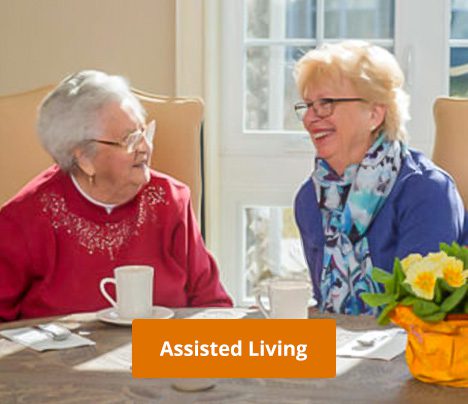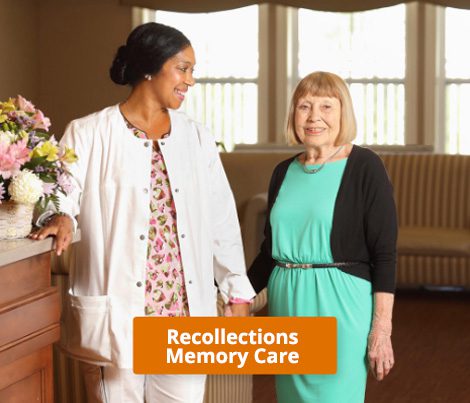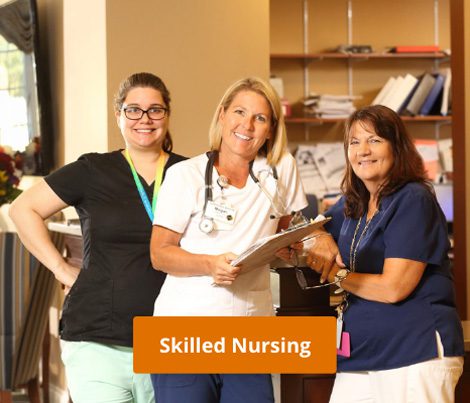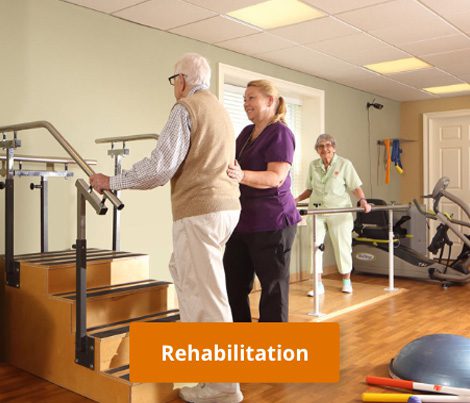How Can I Have a Healthier Heart?

 With Valentine’s Day right around the corner, there’s more than just love in the air—February also happens to be American Heart Month (someone definitely did that on purpose). Fostering a healthy heart is a key factor in a long and healthy life, but it’s not always easy to determine what you, specifically, need to do to keep your heart beating as you get older. Each senior is different, and thus each heart unique in its needs.
With Valentine’s Day right around the corner, there’s more than just love in the air—February also happens to be American Heart Month (someone definitely did that on purpose). Fostering a healthy heart is a key factor in a long and healthy life, but it’s not always easy to determine what you, specifically, need to do to keep your heart beating as you get older. Each senior is different, and thus each heart unique in its needs.
So here are some tips for those special someones who may have different needs when it comes to a healthy heart. Diet and exercise are going to be big players in each section, so be sure to consult with your doctor about what will work best for your situation.
I think I’m overweight; how can I keep my heart in good shape?
As we get older, being overweight can increase our risk of a heart attack or other heart conditions. The first step is to meet with your doctor and find out if you are, in fact, overweight. While there are many online calculators that can help you get an idea of what you should weigh in relation to your age, height, and gender, seeing a professional is always a better option.
From there, you and your doctor can start adjusting your lifestyle. Your goals need to be realistic; if you’re a big fan of candy, and you decide to quit sugar cold turkey, you might be setting yourself up to fail. Make substitutions in small increments to transform the change into a habit. Rome wasn’t built in a day, and your mind will need some time to adjust!
Exercise combined with diet can put you on the road to long-lasting health. Walking for even 30 minutes a day can make a huge difference in how well your heart performs. Remember, don’t compare yourself to others—what’s best for them may not be best for you. Sunnyside Manor has several personal training and fitness options for keeping your heart fit and healthy.
Don’t let weight be the factor that determines your heart health; it’s one of the few things you can actively take control over!
I quit smoking, but I’m concerned about existing damage. What can I do?
Congrats on kicking the habit; smoking alone can double your risk of a heart attack or heart disease. According to the American Lung Association, your heart will begin to recover within hours of your last cigarette—your blood pressure drops, which means your heart doesn’t have to work as hard. After one day, your risk of a heart attack lowers while your good cholesterol begins to rise.
Foods that boost your immune system and have anti-inflammatory properties are great ways to help your lungs as they begin to recover. Again, consult your doctor, but cardiovascular exercise, aerobic exercises, and even yoga are excellent ways to begin repairing your lungs and heart.
Deep breathing exercises are beneficial to both your lungs and your heart; your lungs have been starved of oxygen, so when you can, try and breathe as deeply as possible. Breathe in through your nose until your stomach expands—then breathe out through your mouth. Holding your breath for a few seconds in between can also help increase your lung capacity and strengthen your diaphragm.
Once you’ve kicked the habit, it’s vital that you don’t pick it up again. Throw out your ashtrays and ask friends and family to avoid smoking around you. Second-hand smoke might lead to temptation. If you need to, change up your routine so you aren’t focusing on gaps that were once considered a “smoke break.” Consider eating in a different room for breakfast or taking a walk if you’re feeling the itch to grab a cigarette.
I already have a heart condition. What can I do?
Slowing down heart disease is not the same boat as preventing it, unfortunately. But there are changes you can make to help improve your quality of life and even ease the burden on your heart. Obviously, stop smoking if you haven’t already.
Consult your doctor about a prescribed diet and exercise regimen if you haven’t already. Once you and your doctor have a plan in place, sticking to it is vital. Medical recommendations can be wildly different from one heart condition to the next—some diets can be great for one condition and detrimental to another, so avoid online guides and talk to your doctor. Don’t assume that a diet is good for you because it’s recommended by a family member or celebrity. Your doctor is your partner in this!
It’s equally as important to keep an eye on your mental well-being; many people may find that with heart diseases come things like depression or anxiety. Communicate your moods and mental state with both yourself and your care team—don’t suffer in silence. Keeping up with your friends and family are great ways to help stave off feelings of loneliness, lack of motivation, or depression. Exercise can help, so don’t give up your physical activities when you’re feeling low!
Whether you’re working to prevent heart problems or living with a heart condition, your healthcare professionals are there to help you through. If you have questions about your heart, your unique risk factors (such as genetic factors), or your diagnosis, be sure to ask your doctor. Knowledge is power, and the more you know about how to help your heart, the more you can do! Be sure to contact Sunnyside Manor and find out how we can help you have a stronger, healthier heart.
The all new Sunnyside Manor, located in Wall NJ, is the area’s premier senior living community. It features three distinctive neighborhoods: Independence ‘Plus’ Assisted Living, Recollections Memory Care, and Skilled Nursing.
The information provided in this article is not intended to replace the advice of your healthcare provider. Talk to your doctor about any heart health concerns you may have.









